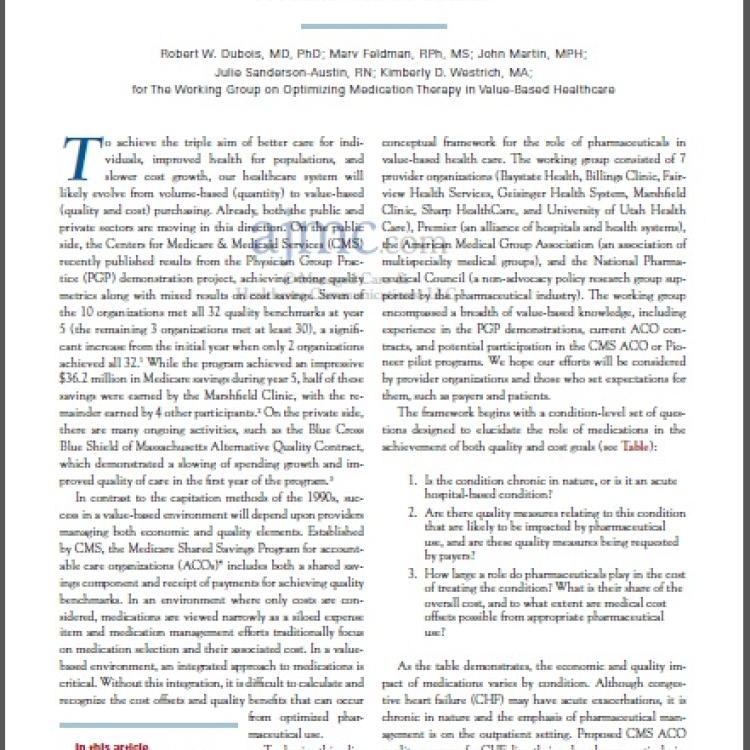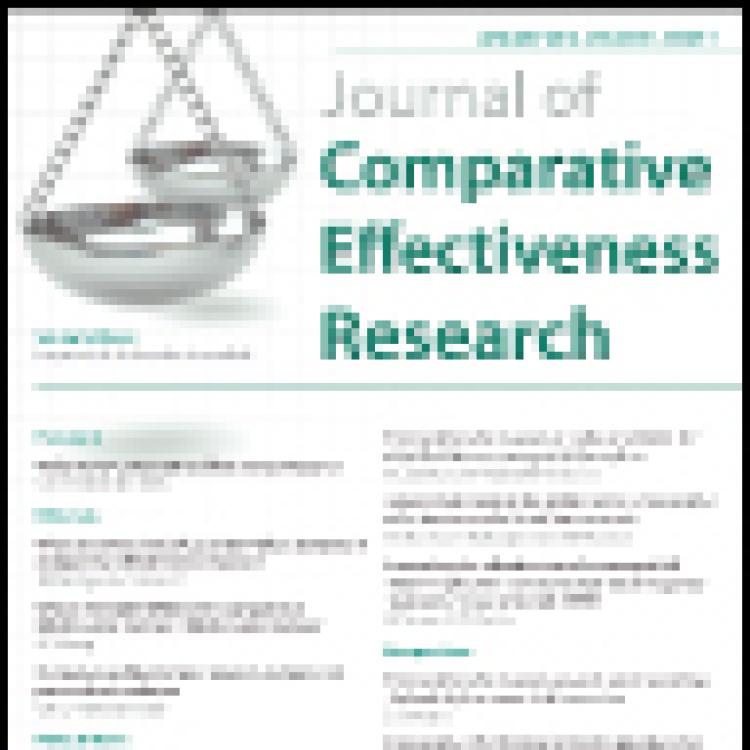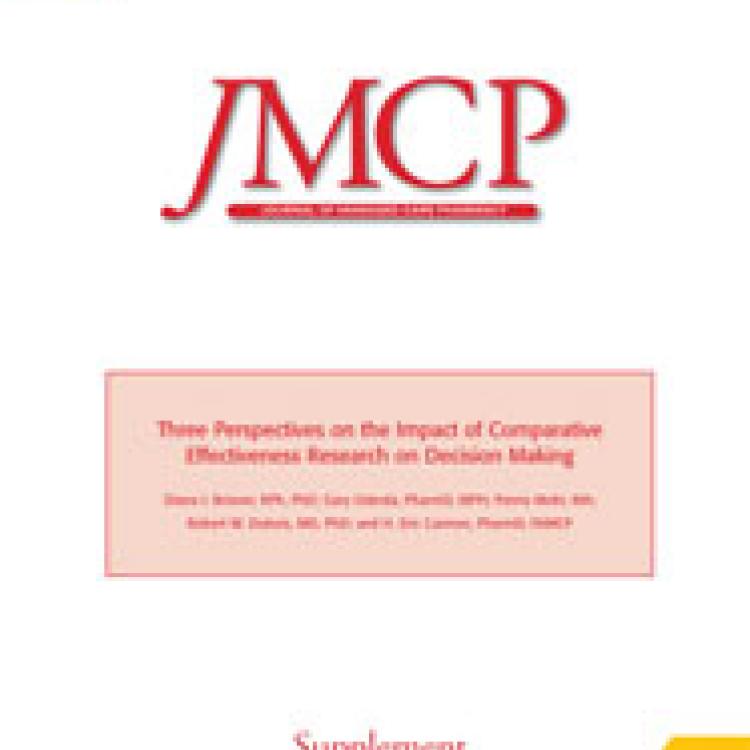Resources
The National Pharmaceutical Council (NPC) is a health policy research organization dedicated to the advancement of good evidence and science, and to fostering an environment in the United States that supports medical innovation.
Filter by:
Topic
Topic
- Accountable Care Organizations
- Alternative Payment Models
- Biopharmaceutical Innovation
- Bundled Payments
- Clinical Pathways
- Decision Frameworks
- Elements of Value
- Evidence for Decision Making
- Formulary/Benefit Design
- Formulary Development
- Good Practices for Evidence
- Health Care Quality Measures
- Health Spending
- Health Spend Management
- High-Deductible Health Plans
- Impact on Outcome & Spending
- Individual Treatment Effects & Personalized Access
- IRA Implementation
- Low-Value Care
- Pandemic Response
- Patient Cost Sharing
- Paying for Cures
- Pharmacy Benefit Managers (PBMs)
- Policy & Regulatory Barriers
- Real-World Data
- Real-World Evidence
- Regulatory Barriers & Challenges
- Understanding Health Spending
- Utilization Management & Step Therapy
- Value-Based Contracts
- Value-Based Insurance Design
- Value Assessment
- Value Assessment Frameworks
- Value Assessment Methods
Resource Type
Display Only
Showing 1216 Results
Role of Pharmaceuticals in Value-Based Healthcare: A Framework for Success
Accountable Care Organizations (ACOs) have received a great deal of attention and press through peer-reviewed articles and news stories. In an ACO, providers have at least some financial…
NPC Research Highlighted at Academy Health's Annual Research Meeting
NPC’s collaborative research, “What is the Real World Impact of Comparative Effectiveness Research (CER) Findings on Utilization?” will be highlighted at Academy Health’s Annual Research Meeting on…
NPC's Chief Science Officer to Speak at DIA 2012 Annual Meeting Executive Session
NPC Chief Science Officer Dr. Robert Dubois will speak during the “DIA 2012 Executive Session: Pioneering Partnerships” at the Drug Information Association’s Annual Meeting on June 26 at 10 a.m…
Principles for the Conduct of Comparative Effectiveness Research
Several researchers and stakeholders are developing a set of principles about what constitutes good comparative effectiveness research (CER) principles for oncology, according to an article in today…
Journal of Comparative Effectiveness Research Invites Submissions
The Journal of Comparative Effectiveness Research, a bimonthly, peer-reviewed journal, is now inviting submissions. The Journal's scope includes studies of comparative effectiveness research yielding…
Will CER Stimulate or Depress Innovation in Healthcare?
With the establishment of the Patient-Centered Outcomes Research Institute in the United States and growth in comparative effectiveness research (CER) worldwide, health care stakeholders are…
Challenges with CER Uptake in Clinical Practice
The goal of comparative effectiveness research (CER) is to improve health care decision making by patients and providers. Given the expected influx of CER in coming years via public and private…
Individual Treatment Effects: From Research to Action
During the next few years, a substantial number of comparative effectiveness research (CER) studies will examine a treatment’s effect on the average population, which may not apply to everyone. That…
Research Methods 101: Will Individual Treatment Effects Be Considered?
In the last post of this month’s series on research methods, we wanted to touch upon an important aspect of comparative effectiveness research: what happens when a treatment works well for the…
A Translation Table for Patient-Centered Comparative Effectiveness Research
This series of papers, published today in the Journal of Comparative Effectiveness Research, explore the challenges and opportunities with selecting appropriate research methods, soliciting…
A Translation Table for Patient-Centered Comparative Effectiveness Research-- Guidance to Improve the Value of Research for Clinical and Health Policy Decision-Making
This collaborative project was developed by the National Pharmaceutical Council, the Center for Medical Technology Policy, and Outcome, a Quintiles Company.
Research Methods 101: Other Types of Randomized Controlled Trials
In our series on research methods, we've touched on randomized controlled trials (RCTs) and one type of RCT, the pragmatic clinical trial. But there are several other types of RCTs that can be useful…
Research Methods 101: Pragmatic Clinical Trials
Earlier this month we wrote about randomized controlled trials and observational studies and the pros and cons of each for answering research questions. According to Dr. Marc Berger, executive vice…
Three Perspectives on the Impact of Comparative Effectiveness Research on Decision Making
In a special supplement to the May 2012 Journal of Managed Care Pharmacy, National Pharmaceutical Council Chief Science Officer Robert W. Dubois, MD, PhD, takes a closer look at comparative…
Three Perspectives on the Impact of Comparative Effectiveness Research on Decision Making
In a special supplement to the May 2012 Journal of Managed Care Pharmacy, National Pharmaceutical Council Chief Science Officer Robert W. Dubois, MD, PhD, takes a closer look at comparative…
Research Methods 101: Observational Studies
This post is part of NPC's series on research methods.
Research Methods 101: Randomized Controlled Trials
Later this month, the Patient-Centered Outcomes Research Institute (PCORI) will be releasing a draft of its methodology report, which will set the groundwork for the standards and types of research…



